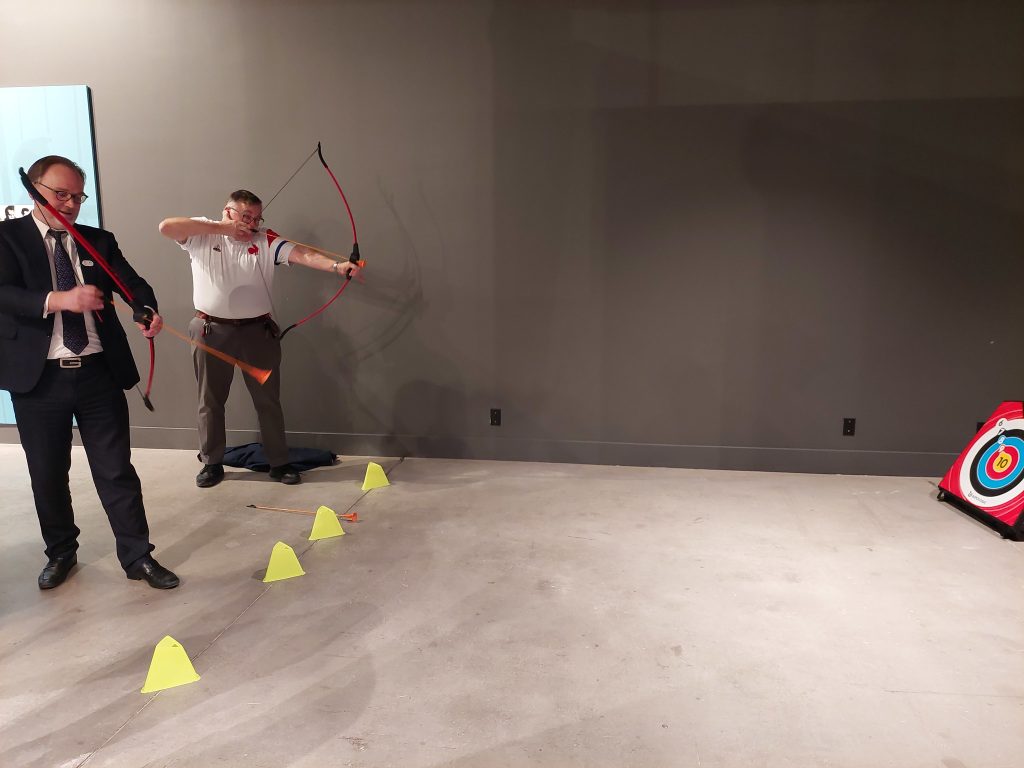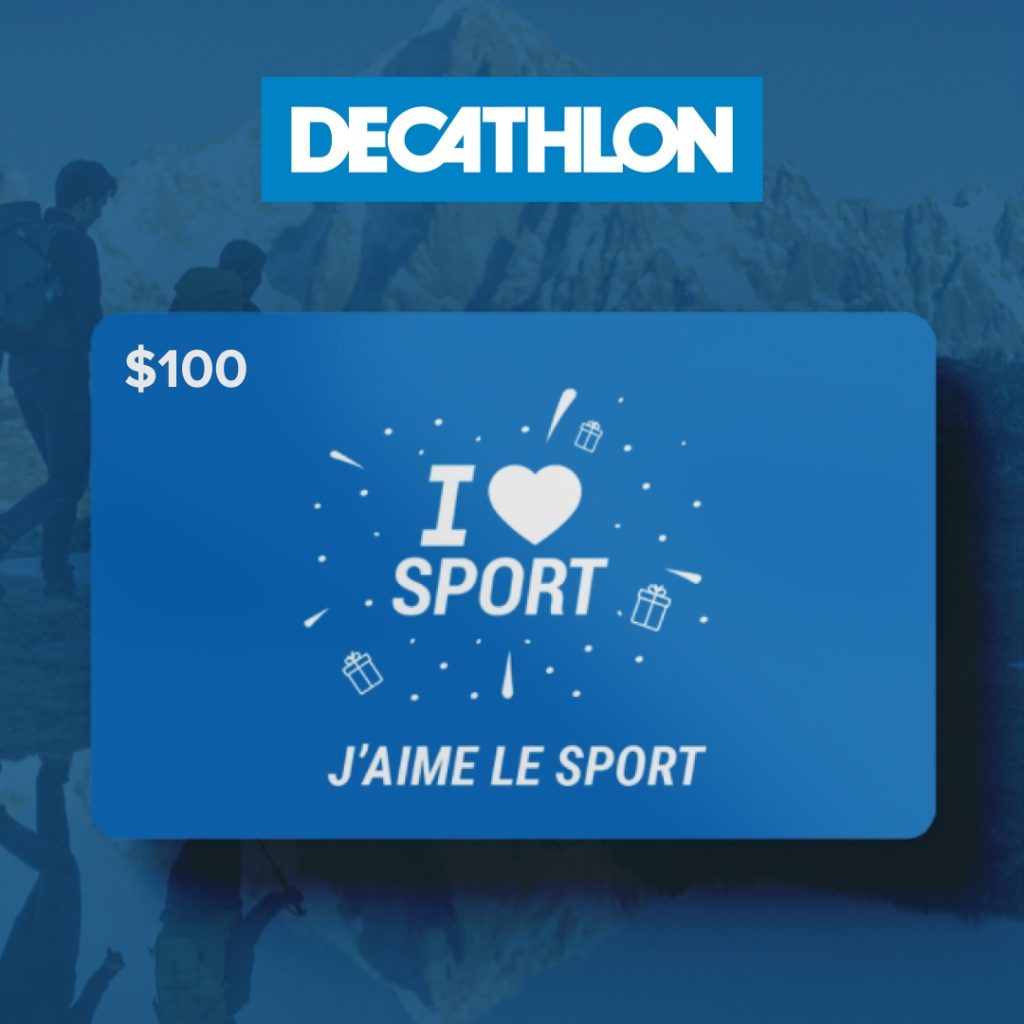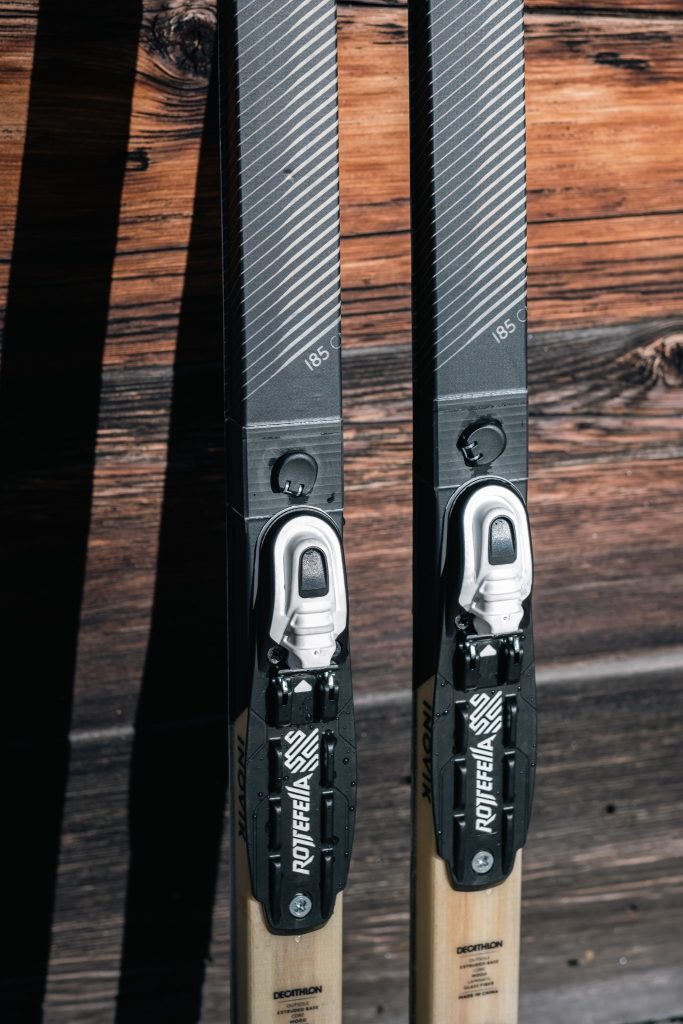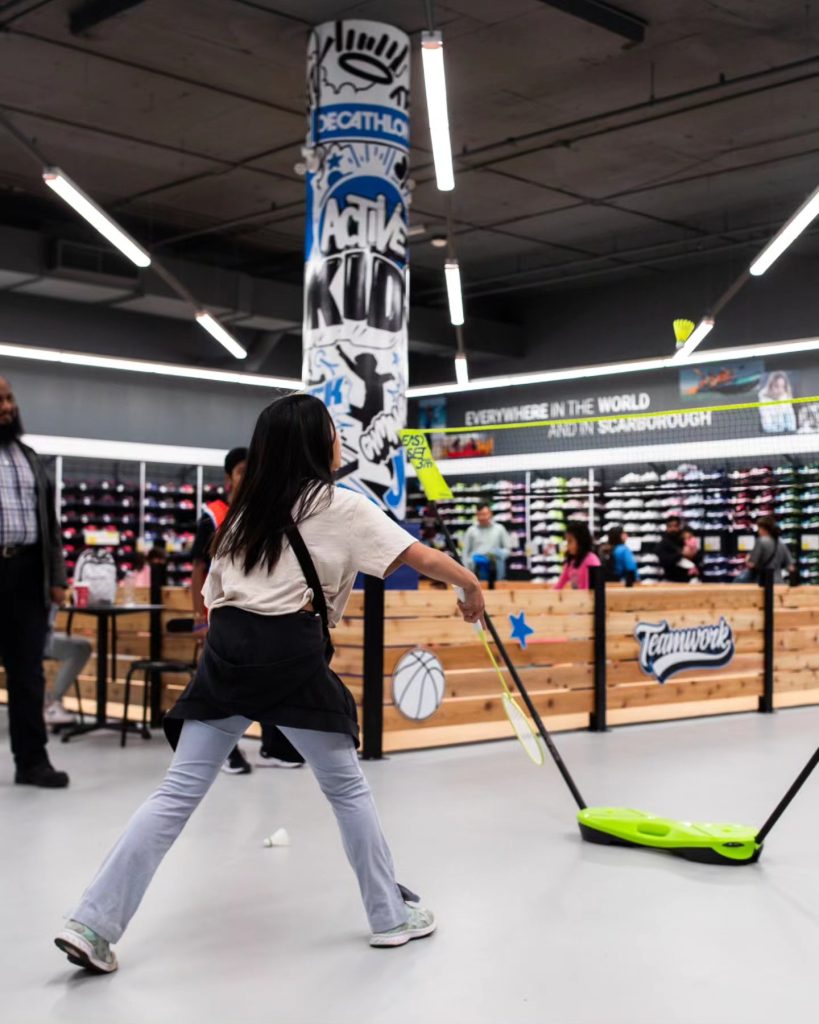
Decathlon: Revolutionizing the Sporting Goods Industry with Innovation,
Introduction Decathlon
Decathlon is a French sporting goods retailer with a mission to “make sport accessible to everyone.” Founded in 1976, the company has grown into a global brand with over 1,700 stores in 70 countries, including India. Decathlon offers a wide variety of high-quality, affordable sports equipment and apparel for over 70 different sports, making it a one-stop shop for all your sporting needs.
Decathlon products can be purchased online or at one of their many stores. Their website is easy to navigate and offers a wide variety of products at competitive prices. Decathlon also has a loyalty program that rewards customers for their purchases.
Decathlon is a great option for anyone looking for high-quality, affordable sports equipment and apparel. With its wide variety of products, passionate employees, and commitment to sustainability, Decathlon is sure to become your go-to store for all your sporting needs
History of Decathlon
Decathlon’s remarkable journey began in 1976, when Michel Leclercq opened a single store in Lille, France. Driven by the belief that everyone should have access to quality sports equipment and apparel at affordable prices, Leclercq built a brand that would revolutionize the sporting goods industry.
The first Decathlon store was a modest affair, offering a limited range of products for a handful of sports. However, Leclercq’s innovative approach and commitment to affordability quickly attracted customers. He focused on designing and manufacturing his own products, cutting out middlemen and passing on the savings to consumers.
One of Decathlon’s earliest successes was the “Quechua” brand, which launched in 1985 and specialized in outdoor and camping equipment. Quechua quickly became a market leader, thanks to its high-quality products and competitive prices.
1990s-2000s: Global Expansion
By the 1990s, Decathlon had established itself as a major player in the French sporting goods market. The company began to expand internationally, opening its first store outside of France in Spain in 1992.
Decathlon’s international expansion was driven by a combination of factors, including its unique business model, its commitment to innovation, and its ability to adapt to local markets. The company also benefited from the growing global interest in sports and fitness.
2010s-Present: A Leader in the Global Market
Today, Decathlon is a global leader in the sporting goods industry. The company has over 1,700 stores in 70 countries and employs over 100,000 people. Decathlon offers a wide variety of products for over 70 different sports, making it a one-stop shop for athletes of all levels.
Despite its success, Decathlon remains committed to its core values of affordability, innovation, and passion for sport. The company continues to design and manufacture its own products, and it is constantly looking for new ways to improve its products and services.
Decathlon is well-positioned to continue its growth in the coming years. The company is still expanding internationally, and it is also developing new product categories and services. Decathlon’s commitment to affordability, innovation, and passion for sport is sure to continue to make it a success in the global market.
Decathlon’s Business Model
Decathlon’s unique business model has played a crucial role in its remarkable success as a global sporting goods retailer. Here’s a breakdown of the key components:
- Private Label Focus: Decathlon primarily sells its own brands, eliminating the need for external suppliers and reducing costs.
- In-house R&D: By designing and developing products internally, Decathlon optimizes performance and cost, offering high-quality products at affordable prices.
- Vertical Integration: Decathlon controls its entire supply chain, from design and manufacturing to distribution and marketing, ensuring efficiency and cost control.
2. Procurement and Distribution:
- Direct Sourcing: Decathlon sources materials directly from manufacturers, bypassing intermediaries and reducing costs.
- Global Sourcing: Decathlon leverages its global presence to source materials and manufacture products in low-cost countries, further reducing production costs.
- Optimized Distribution: Decathlon uses efficient logistics and transportation networks to reduce distribution costs and ensure timely delivery of products to its stores.
3. Retail Strategy:
- Large-format Stores: Decathlon operates large stores with a wide range of products, offering a one-stop shopping experience for athletes.
- Self-service Layout: Decathlon’s stores are designed for self-service, reducing labor costs and allowing customers to browse and compare products at their own pace.
- Simple Product Presentation: Decathlon focuses on product functionality and value, minimizing unnecessary packaging and marketing costs.
- Low-cost Strategy: Decathlon strives to offer the best value for money by offering high-quality products at affordable prices.
- Economy of Scale: Decathlon’s large scale allows it to negotiate better prices with suppliers and achieve economies of scale, further reducing costs.
- Limited Marketing: Decathlon minimizes marketing expenses, focusing on word-of-mouth marketing and product quality to build brand awareness.
5. Customer Focus:
- Passion for Sport: Decathlon’s employees are passionate about sport and understand the needs of their customers. This passion translates into excellent customer service and a welcoming environment for all athletes.
- Product Innovation: Decathlon is committed to developing innovative products that meet the evolving needs of its customers.
- Customer Feedback: Decathlon actively seeks and integrates customer feedback into product development and store operations, ensuring their offerings remain relevant and in demand.
Decathlon’s business model is a powerful combination of cost control, product innovation, and customer focus. This winning formula has allowed Decathlon to become a global leader in the sporting goods industry, making sport accessible and enjoyable for people of all ages and backgrounds.
Product Range
Decathlon boasts a vast product range, encompassing over 70 different sports and catering to athletes of all levels, from beginners to professionals. Here’s a glimpse into the diverse world of Decathlon products:
Team Sports:
- Football: Decathlon offers a wide range of footballs, boots, jerseys, training equipment, and accessories for all levels.
- Basketball: Basketball enthusiasts can find a comprehensive selection of basketballs, shoes, apparel, and training aids.
- Cricket: Decathlon caters to cricket lovers with bats, balls, pads, helmets, kits, and other essential equipment.
- Volleyball: From volleyballs and nets to shoes and apparel, Decathlon provides everything you need to enjoy this popular sport.
Individual Sports:
- Running: Decathlon offers a variety of running shoes, apparel, accessories, and even treadmills and exercise bikes to support your training goals.
- Cycling: Whether you’re a casual cyclist or a dedicated road warrior, Decathlon offers a range of bicycles, cycling apparel, helmets, and accessories for every need.
- Swimming: Decathlon provides a wide selection of swimwear, goggles, pool accessories, and even inflatable pools to get you splashing around.
- Tennis: From beginner-friendly rackets to professional-grade gear, Decathlon offers everything you need to ace your game.
Outdoor Activities:
- Hiking and Trekking: Decathlon equips you for your next adventure with backpacks, tents, sleeping bags, hiking boots, and outdoor clothing.
- Camping: From tents and camping furniture to cooking essentials and lighting solutions, Decathlon provides everything for a comfortable camping experience.
- Fishing: Anglers can find rods, reels, lures, bait, and other fishing gear at Decathlon, along with waders and fishing apparel.
- Kayaking: Decathlon offers a range of kayaks, paddles, life jackets, and other kayaking essentials for exploring the water.
Fitness:
- Gym Equipment: Decathlon’s gym equipment range includes treadmills, exercise bikes, elliptical trainers, weights, benches, and other equipment for home workouts.
- Yoga: From yoga mats and blocks to straps and bolsters, Decathlon provides everything you need for your yoga practice.
- Fitness Apparel: Decathlon offers a wide variety of comfortable and stylish fitness apparel for men and women.
Clothing and Footwear:
- Sportswear: Decathlon offers a comprehensive range of sportswear for various sports, including running, cycling, swimming, tennis, basketball, and more.
- Casual Wear: Decathlon also provides a selection of casual wear for everyday comfort and style.
- Shoes: From running shoes and football boots to hiking boots and casual sneakers, Decathlon offers shoes for all needs.
This diverse product range demonstrates Decathlon’s commitment to making sport accessible and enjoyable for everyone. Whether you’re a seasoned athlete or just starting out, Decathlon has the equipment and apparel you need to reach your goals and experience the joy of sport.
Sustainability Initiatives
Decathlon’s mission to make sport accessible to everyone extends beyond affordability and accessibility. The company recognizes the importance of environmental responsibility and has embraced a range of sustainability initiatives to minimize its impact on the planet. Here are some key aspects of Decathlon’s sustainability efforts:
- 100% Eco-designed Products by 2026: Decathlon aims to eco-design all its products by 2026, ensuring they are designed with sustainability in mind throughout their lifecycle. This includes using recycled materials, minimizing waste, and designing products for durability and repairability.
- Sustainable Materials: Decathlon actively seeks out and uses sustainable materials in its products, such as organic cotton, recycled polyester, and bio-based plastics.
- Product Durability and Repairability: Decathlon designs products to last longer and be easily repaired, reducing the need for replacements and extending their lifespan.
Reducing Carbon Emissions:
- Decarbonization Targets: Decathlon is committed to reducing its absolute CO2 emissions by 20% by 2026. This includes initiatives to reduce energy consumption in its stores and operations, invest in renewable energy sources, and optimize transportation and logistics.
- Carbon Footprint Labeling: Decathlon calculates and displays the carbon footprint of its products, allowing customers to make informed choices based on environmental impact.
Promoting Responsible Consumption:
- Second-hand Products: Decathlon encourages responsible consumption by offering a range of second-hand products, including bicycles, kayaks, and other equipment. This gives products a second life and reduces waste.
- Product Donations: Decathlon donates unsold products to sports associations and charities, ensuring they are used instead of being discarded.
- Repair Services: Decathlon offers repair services for its products, helping customers extend the life of their equipment and reduce waste.
Empowering Employees and Customers:
- Sustainability Training: Decathlon provides sustainability training to its employees, fostering a culture of environmental responsibility within the company.
- Customer Awareness Campaigns: Decathlon regularly conducts awareness campaigns to educate customers about sustainability issues and encourage them to make eco-friendly choices.
- Partnerships: Decathlon partners with NGOs and environmental organizations to support sustainability initiatives and promote environmental awareness.
Decathlon’s commitment to sustainability is not just a slogan; it’s a deeply ingrained philosophy that drives its business decisions and operations. By taking concrete actions to reduce its environmental impact, Decathlon is setting an example for other companies and contributing to a greener future for all.
Technology and Innovation
Decathlon’s Embrace of Technology and Innovation: Driving Progress in Sports
Product Development:
- 3D Printing: Decathlon utilizes cutting-edge 3D printing technology to develop prototypes and create customized products for specific needs.
- Computer-aided Design (CAD): By leveraging CAD software, Decathlon designs and optimizes its products for performance, functionality, and aesthetics.
- Materials Science: Decathlon collaborates with research institutes and universities to develop innovative materials for its products, enhancing both performance and sustainability.
Manufacturing and Operations:
- Robotics and Automation: Decathlon strategically utilizes robotics and automation in its manufacturing facilities to improve efficiency and productivity.
- Internet of Things (IoT): Decathlon integrates IoT sensors into its products to collect valuable data on usage and performance, which is then used to drive future design improvements.
- Big Data and Analytics: Decathlon leverages the power of big data analytics to analyze customer behavior and optimize its product offerings, marketing strategies, and store operations.
Customer Experience:
- User-friendly E-commerce Platform: Decathlon provides an intuitive online platform for customers to browse, compare, and purchase products.
- Convenient Mobile App: Decathlon offers a mobile app that allows customers to access product information, track orders, and manage their memberships with ease.
- Engaging Connected Products: Decathlon develops connected products that provide users with personalized data and training insights, ultimately enhancing their athletic performance.
Retail Stores:
- Streamlined Processes with RFID Technology: Decathlon utilizes RFID technology to track inventory, streamline checkout processes, and personalize customer experiences.
- Interactive Displays: Decathlon uses interactive displays in its stores to provide customers with product information, tutorials, and training exercises.
- Immersive Virtual Reality (VR) Experiences: Decathlon offers VR experiences in some of its stores, allowing customers to test products in a simulated environment.
This embrace of technology and innovation underscores Decathlon’s commitment to progress in the sporting goods industry. By leveraging cutting-edge solutions, Decathlon constantly finds new ways to improve product quality, enhance customer experience, and make sport more accessible for all.
Community Engagement
Decathlon’s mission extends beyond providing accessible sporting goods. The company actively engages with communities around the world, fostering a shared passion for sport and driving positive social change. Here are some key aspects of Decathlon’s community engagement initiatives:
Promoting Sports Participation:
- Sports Academies: Decathlon establishes sports academies in underserved communities, offering affordable training programs and access to equipment for children and adults from all backgrounds.
- Community Partnerships: Decathlon partners with local sports organizations and NGOs to organize sports events, training sessions, and workshops, promoting sports participation and skill development.
- Sports for All Events: Decathlon regularly organizes free or low-cost sports events for the community, encouraging people of all ages and abilities to participate in physical activity.
Empowering Youth:
- School Programs: Decathlon collaborates with schools to introduce sports programs and provide equipment, encouraging physical activity and healthy lifestyles among young people.
- Life Skills Development: Decathlon incorporates life skills development into its sports programs, teaching young people valuable lessons like teamwork, discipline, and perseverance.
- Mentorship Programs: Decathlon offers mentorship programs where experienced athletes and coaches guide and support young people, helping them reach their full potential in sports and beyond.
Supporting Local Communities:
- Accessibility Initiatives: Decathlon actively works to make its stores and services accessible to people with disabilities, ensuring everyone can participate in sport.
- Environmental Projects: Decathlon participates in environmental initiatives such as tree planting programs and clean-up drives, contributing to a healthier planet.
- Disaster Relief: Decathlon provides emergency assistance and donations to communities affected by natural disasters, helping them rebuild and recover.
Building a Collaborative Network:
- Decathlon Sports Leaders: Decathlon trains and empowers a network of passionate individuals as Decathlon Sports Leaders, who then organize sports activities and events within their communities.
- Volunteer Programs: Decathlon actively encourages employee volunteerism, allowing them to contribute their time and skills to various community initiatives.
- Partnerships with Sports Federations: Decathlon collaborates with national and international sports federations to promote sports development and participation, sharing resources and expertise.
Decathlon’s community engagement initiatives are not just CSR activities; they are integral to the company’s mission and values. By actively engaging with communities and promoting sports participation, Decathlon is making a significant positive impact on the lives of millions of people around the world.
Customer Reviews and Satisfaction
Decathlon in India generally receives positive customer reviews and enjoys high satisfaction ratings. Here’s a breakdown of the key points:
- Value for money: Customers consistently praise Decathlon’s affordable prices, especially compared to other sporting goods brands. They find the quality of products to be good for the price, making them accessible to a wider audience.
- Wide variety: Decathlon offers a vast range of products for over 70 different sports, catering to various needs and preferences. This variety is appreciated by customers who can find everything they need in one place.
- Customer service: Many customer reviews highlight Decathlon’s helpful and knowledgeable staff. They appreciate the staff’s willingness to answer questions, provide recommendations, and assist with returns or exchanges.
- Product quality: While some customers report occasional issues with product durability, the overall consensus is that Decathlon products offer good quality for their price point. Customers are generally satisfied with the performance and functionality of the products.
- Store experience: Decathlon stores are generally praised for their spacious layout, organized product displays, and easy navigation. Customers find it easy to browse and find what they are looking for.
Areas for Improvement:
- Product durability: Some customers have reported issues with the durability of certain products, particularly in the footwear and clothing categories.
- Customer service consistency: While many customers praise the customer service, some report inconsistencies in service quality across different stores or staff members.
- Online shopping experience: While Decathlon offers a convenient online shopping platform, some customers have reported issues with website functionality, delays in delivery, and return/exchange processes.
- Limited warranty: Some customers feel that Decathlon’s warranty period is shorter than other brands, offering less protection in case of product defects.
Customer reviews and satisfaction surveys paint a positive picture of Decathlon in India. The company is valued for its affordability, wide product range, and helpful staff. However, there are some areas where Decathlon can improve, such as product durability, ensuring consistent customer service across all stores, and enhancing the online shopping experience.
Challenges and Controversies
While Decathlon enjoys a positive reputation and widespread success, the company has also encountered its fair share of challenges and controversies over the years. Here’s an overview of some key issues:
Challenges:
- Competition: With increasing competition from established sports brands and online retailers, Decathlon faces pressure to maintain its competitive edge in price and product quality.
- Supply chain disruptions: Global trade disruptions and political instability can impact Decathlon’s manufacturing and supply chain, leading to product shortages and delays.
- Maintaining product quality: Balancing affordability with product quality can be challenging, as customers may expect higher durability and performance at higher price points.
- Adapting to local markets: Successfully adapting its product offerings and marketing strategies to diverse cultural preferences in different countries requires ongoing effort and research.
- Sustainability challenges: Decathlon faces the challenge of minimizing its environmental impact while maintaining its affordability and accessibility. This requires continuous innovation and responsible sourcing practices.
Controversies:
- Working conditions: Decathlon has faced criticism regarding the working conditions in some of its supplier factories, particularly in countries with lower labor standards.
- Product safety: There have been instances of product recalls and safety concerns regarding some Decathlon products, particularly in the cycling and fitness equipment categories.
- Animal welfare: Decathlon’s use of animal-derived materials in some of its products has drawn criticism from animal rights activists.
- Environmental impact: Despite Decathlon’s sustainability initiatives, concerns remain regarding the environmental impact of its manufacturing processes and product disposal.
- Greenwashing accusations: Some critics argue that Decathlon’s marketing emphasizes its sustainability efforts more than its actual progress in reducing its environmental footprint.
While Decathlon has faced various challenges and controversies, the company demonstrates a commitment to addressing these issues and improving its practices. By focusing on ethical sourcing, product safety, sustainability, and open communication, Decathlon strives to maintain its positive reputation and continue its success as a global sporting goods leader.
Future Outlook
Decathlon’s future outlook is a compelling mix of exciting opportunities and significant challenges. Here’s a detailed analysis of the key factors shaping Decathlon’s future:
Macroeconomic Trends:
- Growing Global Sports Market: The global sports market is expected to continue its steady growth, reaching $646.6 billion by 2027. This presents a favorable environment for Decathlon’s expansion and increased market share.
- Shifting Consumer Preferences: The rise of health and wellness consciousness, along with the popularity of athleisure wear and personalized fitness, creates opportunities for Decathlon to cater to these evolving preferences.
Technological Advancements:
- AI and Big Data: Decathlon can leverage artificial intelligence and big data to personalize customer experiences, predict demand, optimize supply chains, and develop innovative products.
- Robotics and Automation: Automation can enhance efficiency and productivity in manufacturing and logistics, allowing Decathlon to offer competitive prices and faster delivery times.
- E-commerce Growth: The continued growth of online shopping necessitates a strong digital presence for Decathlon. Enhancing its online platform and mobile app will be crucial for maintaining market competitiveness.
Strategic Considerations:
- Innovation and Product Development: Continuous innovation in product design, sustainability, and functionality will be essential for Decathlon to stand out in a crowded market.
- Omni-channel Strategy: Seamless integration of online and offline channels, with options for click-and-collect, in-store pickup, and online returns, will improve customer experience and convenience.
- Sustainability Focus: Decathlon’s commitment to sustainability will resonate with environmentally conscious consumers. Investing in eco-friendly materials, production processes, and waste reduction will enhance brand image and loyalty.
- Community Engagement: Building strong relationships with local communities through sports events, partnerships, and social programs can boost brand recognition and positive perception.
Challenges and Risks:
- Intense Competition: Decathlon faces fierce competition from established brands and online retailers. Differentiated product offerings, competitive pricing strategies, and innovative marketing campaigns will be crucial for success.
- Economic Uncertainties: Global economic fluctuations and geopolitical instability can impact consumer spending and disrupt Decathlon’s supply chains. Diversification of markets and suppliers, coupled with financial resilience, will be essential for mitigating risks.
- Brand Reputation Management: Maintaining a positive brand image requires continuous monitoring and addressing ethical concerns regarding labor practices, product safety, and environmental impact. Transparency and proactive engagement with stakeholders are key.
- Adapting to Change: Decathlon must be agile and adaptable to evolving consumer preferences, technological advancements, and market dynamics. Continuous research and development, coupled with a willingness to experiment and adjust strategies, will be critical.
- Scenario 1: Continued Growth and Expansion: Decathlon successfully navigates challenges, embraces innovation, and expands its global footprint, becoming the leading global sports retailer.
- Scenario 2: Niche Market Focus: Decathlon caters to specific customer segments with specialized products and services, becoming a leader in niche sports and outdoor activities.
- Scenario 3: Sustainability Champion: Decathlon becomes a champion of sustainability in the sports industry, setting new standards in eco-friendly practices and inspiring other companies to follow suit.
- Scenario 4: Disruption and Challenges: Decathlon struggles to adapt to changing market dynamics, faces intense competition, and encounters challenges with brand reputation, potentially impacting its market share and growth.
Decathlon’s future depends on its ability to capitalize on opportunities, address challenges effectively, and adapt to the evolving sporting goods landscape. By remaining innovative, customer-centric, and committed to sustainability, Decathlon has the potential to achieve continued growth and success, making sport accessible and enjoyable for everyone around the world.
This detailed analysis provides a comprehensive understanding of the key factors shaping Decathlon’s future and the various potential scenarios that could unfold. By remaining informed and adaptable, Decathlon can navigate the challenges and seize the opportunities that lie ahead, securing its position as a leading global player in the sports industry.
Decathlon’s Impact on the Sports Industry
Decathlon’s arrival on the sporting goods scene has had a profound impact, shaking up the industry and reshaping the way people access and participate in sports. Here are some key aspects of Decathlon’s impact:
- Affordable Products: Decathlon’s focus on affordability has made sports more accessible for people of all backgrounds and income levels. This has democratized participation, allowing more individuals to experience the joy and benefits of physical activity.
- Wide Product Range: Decathlon offers a vast range of products for over 70 different sports, catering to diverse needs and preferences. This one-stop shopping experience makes it easier for people to get started with new activities or find everything they need for their existing hobbies.
- Convenient Locations: Decathlon’s large-format stores are conveniently located, making it easier for people to access sporting goods without having to travel long distances.
Democratization of Sports:
- Breaking Brand Barriers: Decathlon’s focus on its own private-label brands challenges the dominance of established sporting goods brands. This opens the market to new players and encourages innovation, ultimately benefitting consumers with greater choice and competitive pricing.
- Focus on Technical Performance: Decathlon emphasizes the technical performance of its products, ensuring that quality and functionality are not compromised by affordability. This empowers individuals to participate in sports without having to invest in expensive branded gear.
- Promoting Participation: Decathlon actively promotes sports participation through its community engagement initiatives, organizing sports events, offering training programs, and supporting local sports clubs. This contributes to a more active lifestyle and a healthier society.
- Focus on Value: Decathlon’s focus on value has forced other sporting goods brands to rethink their pricing strategies and offer more competitive prices. This has led to an overall reduction in costs for consumers and a more competitive market environment.
- Emphasis on Innovation: Decathlon’s commitment to innovation has inspired other companies to invest in research and development to improve their products and services. This constant drive for improvement benefits consumers with better quality products and more advanced technologies.
- Shifting Consumer Preferences: Decathlon has played a role in shifting consumer preferences towards affordability and functionality, making them less reliant on established brands and more open to exploring new options.
Decathlon’s impact on the sports industry has been undeniably positive. By making sports more accessible, affordable, and enjoyable for everyone, Decathlon has contributed to a more active and healthy society. Their business model and philosophy have set a new standard for the industry, forcing other companies to adapt and improve their offerings. Decathlon’s continued growth and success suggest that their impact on the sports industry is likely to be felt for many years to come.
Conclusion
Decathlon stands as a testament to the power of innovation, affordability, and a passion for sports. Their journey exemplifies a commitment to making sports accessible and enjoyable for everyone, regardless of background or income level.
This analysis has explored the various facets of Decathlon’s impact, including:
- Product Range: A vast selection catering to diverse needs and preferences.
- Sustainability Initiatives: Striving towards a greener future with eco-designing, responsible consumption, and technological advancements.
- Technology and Innovation: Embracing cutting-edge technologies to improve product quality, enhance customer experience, and drive progress in sports.
- Community Engagement: Actively promoting sports participation, empowering youth, and supporting local communities.
- Customer Reviews and Satisfaction: Generally positive feedback with praise for affordability, product range, and customer service.
- Challenges and Controversies: Addressing concerns regarding competition, product quality, labor practices, and sustainability.
- Future Outlook: Navigating opportunities and challenges with a focus on innovation, sustainability, digitalization, and a customer-centric approach.
- Impact on the Sports Industry: Driving accessibility, democratizing sports, and leading industry-wide shifts towards value, innovation, and changing consumer preferences.
Decathlon’s success story serves as an inspiration for businesses across various sectors. Their dedication to affordability, sustainability, and customer satisfaction has not only transformed the sports industry but also set a benchmark for ethical and responsible business practices. As Decathlon continues to evolve and adapt to the ever-changing landscape, their impact on sports and society is poised to be even more significant in the years to come.
Decathlon’s commitment to making sports accessible and enjoyable for everyone has demonstrably revolutionized the sports industry and fostered a more active and healthy society. With its unwavering focus on innovation, affordability, and sustainability, Decathlon is well positioned to continue its positive impact for generations to come.











